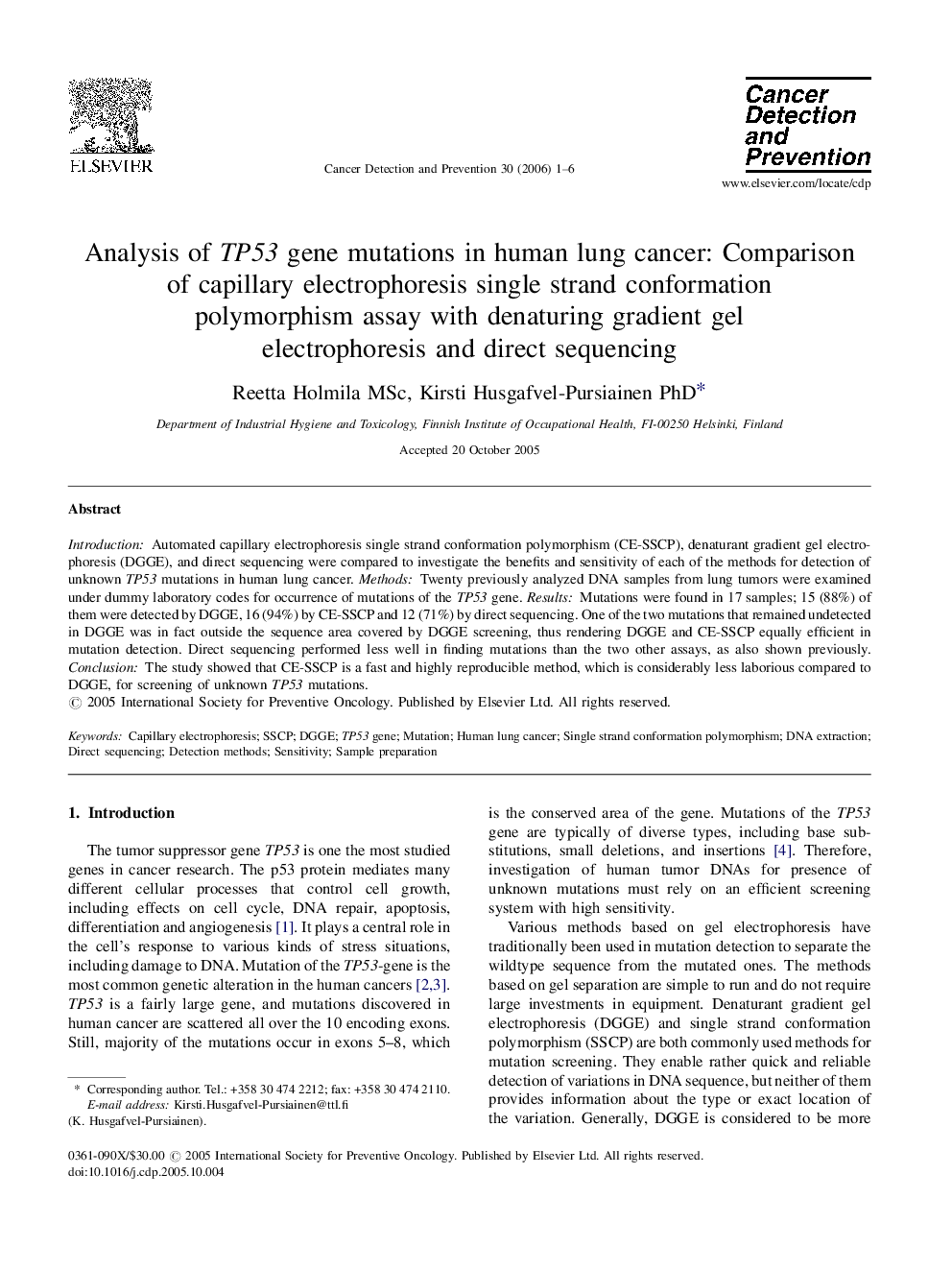| Article ID | Journal | Published Year | Pages | File Type |
|---|---|---|---|---|
| 2108766 | Cancer Detection and Prevention | 2006 | 6 Pages |
Introduction: Automated capillary electrophoresis single strand conformation polymorphism (CE-SSCP), denaturant gradient gel electrophoresis (DGGE), and direct sequencing were compared to investigate the benefits and sensitivity of each of the methods for detection of unknown TP53 mutations in human lung cancer. Methods: Twenty previously analyzed DNA samples from lung tumors were examined under dummy laboratory codes for occurrence of mutations of the TP53 gene. Results: Mutations were found in 17 samples; 15 (88%) of them were detected by DGGE, 16 (94%) by CE-SSCP and 12 (71%) by direct sequencing. One of the two mutations that remained undetected in DGGE was in fact outside the sequence area covered by DGGE screening, thus rendering DGGE and CE-SSCP equally efficient in mutation detection. Direct sequencing performed less well in finding mutations than the two other assays, as also shown previously. Conclusion: The study showed that CE-SSCP is a fast and highly reproducible method, which is considerably less laborious compared to DGGE, for screening of unknown TP53 mutations.
